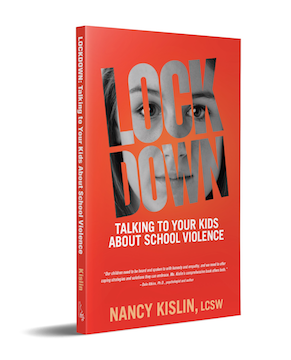Anxiety
We Remember: The Voices of Parkland
The threat of mass shootings continues to traumatize children.
Posted February 15, 2023 Reviewed by Gary Drevitch
Key points
- According to the latest Gun Violence Archive, there have been 67 mass shootings in 2023.
- We share in the responsibility to bear witness to the mass shooting at Marjory Stoneman Douglas High School in Parkland, Florida.
- Students interviewed about school security drills stated that it wasn't a question of if they were going to die in school. It was when.
On the fifth anniversary of the horrific events at Marjorie Stoneman Douglas High School in Florida, we remember the children and their teachers that died.
We continue to offer support to the children and their families who live with the unimaginable trauma.
Five years ago, I did not know that I was about to embark on my journey of researching the emotional and mental trauma that school security drills are inflicting on a generation of children. I did not know that I would become an advocate for demanding that we prioritize the mental, emotional, and physical safety of children.
This is an excerpt from my book, Lockdown: Talking to Your Children About School Violence.
The Voices of Parkland
Ella sat quietly on the couch tightly holding onto the pillow that rested on her lap. She looked anxiously around the room, glancing periodically back and forth at her girlfriends. The girls referred to themselves as a very tight group of friends. They had all been in school that deadly day in February 2018.
The girls and I were gathered in a beautiful home in the idyllic community of Parkland, Florida. Ella shared with me something she worries about. "No one goes to the bathroom during class anymore. We are all too scared. Really, no one in any of my classes leaves the classroom anymore. If someone must go to the office or to the nurse, we go with a friend.”
Maggie, who had been quiet during most of the interview, added, “It’s too scary. What if a drill happens when I am in the hallway or in the bathroom?”
The girls explained that school policy states if you are in the hallway and a drill is announced, you must run into the nearest classroom. Lani jumps in with, “I am not going into a classroom where I don’t know anyone. That is so creepy. What happens if there is a shooter, and we must hide? I don’t want to be alone with people I don’t know.”
Savannah said that if you are caught in the bathroom during a lockdown drill, you must hide in the stall and put your feet up on the toilet. “I would be terrified to be in there by myself. I don’t want to die alone.”
All the girls nodded.
On the surface, this could have been any living room in America with me talking to the girls about boys, drugs, or school pressure, but that was not what was happening here. I was sitting with survivors of the worst mass school shooting to happen on American soil.
Maggie was concerned that I understand how the bathroom situation was a big deal. She stated that there was a guy who came out of the bathroom on the day of the shooting. He walked out of the bathroom only to see the shooter loading bullets into his gun. The shooter looked right at him and then turned back to shooting up the class. The guy was able to run back into the bathroom. “Can you believe it? He didn’t die,” she added.
I asked the girls, “How are you all doing?”
There were some grunts and shrugs. Lara’s beautiful eyes looked at me for a few seconds and then glanced down to the carpet and back at me. Her hands clasped a pillow tightly as she quietly stated, “I had a panic attack in class today.”
I asked, “Why the panic attack?”
“We had a fire drill today. It happened late in the day, just like it did that day. Right after the shooting, they changed the sound of all the bells in the school—the class bell, the fire alarm bell—and added all types of precautions to try and stop what happened the last time. We have been instructed that we are only to leave our classrooms when we hear the fire alarm sirens after one of the administrators get on the loudspeaker and state this is a real drill. ‘Exit your classrooms.’ The new alarm went off. Everyone froze—we all looked at each other waiting for the administrator to get on the PA system and say this is a fire drill. Silence. We waited. We did not hear the announcement that it was a drill. I freaked out.

“Finally, someone came on the PA and said, ‘this is the real thing—an unplanned drill.’ We had to evacuate. I was terrified.
“It turned out that a kid pulled the alarm. But it took a long time before most of us students knew what was going on. I was so scared as we ran through the halls and outside.”
On February 14, 2018, a former student pulled the fire alarm in the school. As the students were returning to class, he started shooting. On that day, months later, I looked at the sweet young woman sitting before me and saw the fear and trauma that embodied her. She courageously let me see a glimpse of the nightmare that was still plaguing her months after the school shooting that robbed seventeen members in her community of their lives.
I looked around the room at all these brave girls, shaking my head in disbelief that one horrific day permanently altered their childhood. A sense of innocence and safety was lost that day.
The Empty Chair
As the conversation with the teens from Marjory Douglas Stoneman High School was ending, a question I had not planned to ask just popped out of my mouth. I couldn’t help myself.
As I felt the heaviness, the pain, and the anxious movements of the girls who more than anything just wanted to be okay, I uttered one word.
“Guilt?”
The energy in the room changed. Dead silence for a few seconds as they all nodded. One brave soul whispered, “Every day, all the time.”
Once she said this, it was as if she gave them permission to speak and feel and they all chimed in. “How could we not?” one whispered. Another girl added, “Why did they die, and I didn’t?”
“One of the boys who was killed was in my science class,” said Jane. “I didn’t know him very well. When we finally came back to school it was weird to see his empty chair. My teacher never said anything about him dying during the shooting. He said nothing. It was so weird.” Jane continued to say that it was difficult to go into her science class and just see that empty chair. Nothing was normal after that day, so why should some teachers pretend as if it was?”
Teachers didn’t know what to do. No one is prepared to handle one of their students being killed at school.
Panic Attacks
“I thought I was going to throw up!” exclaimed Ella. “I was so scared I just kept thinking I was going to lose it all over this closet."
The girls present added several more observations:
- “There were about 30 of us hiding in a small closet. One girl was sobbing; her phone was only at 5 percent. I didn’t know her. She was desperate to talk to her parents. I just gave her my battery charger and said, ‘Use it’. I already spoke to my parents. I didn’t want her not to talk to them.”
- “I never wore the shoes or the clothes I had on that day. Teachers kept asking us kids, ‘What are you hearing?’ They did not have their phones.”
- “My sister sent me a picture of the shooter while I was still hiding in the closet. I knew who was shooting up my school when I was still hiding.”
- “I freak out every time I hear a helicopter. We could hear all the helicopters flying overhead that day.”
- “I didn’t sleep a lot for a long time. “
- “Someone played a certain song on the bus during my summer trip, and I lost it.”
- “My parents are having a hard time. They keep saying they never thought something would happen here.”
- “The panic just starts. I start panicking. I try to tell myself I am fine. But I am anxious. I need this to stop.”
- “My panic attacks are triggered by sounds, thoughts, helicopters. I heard a helicopter yesterday overhead and freaked. Then I realized, ‘Oh, it’s just a helicopter.’”
- “I panic when I am alone or if a place is too crowded. I won’t walk alone to my car. I won’t go alone anywhere by myself. I will find someone to go with me.”
- “We were lucky some of us were together in the media closet. We were worried that our friends were okay. We kept texting each other. We knew...” she points to two of her friends, “We knew they were in a different closet together in another room. We could hear the gunshots. It was terrifying.”
- “If we didn’t have our phones, we would have gone insane. Even though people were saying all kinds of incorrect information, at least we were in contact with others.”
I asked the girls how their parents were doing. “My mom is so careful with me. She needs to know how I am, where I am all the time. It’s okay. I get it.”
You either care about the safety of our children or you don’t. Are you going to fight for children to feel safe in the sanctuary they call school? This is the question that every American should be asking themselves today.
References
LOCKDOWN: Talking to Your Children About School Violence, Nancy Kislin, LCSW, January, 2019.




